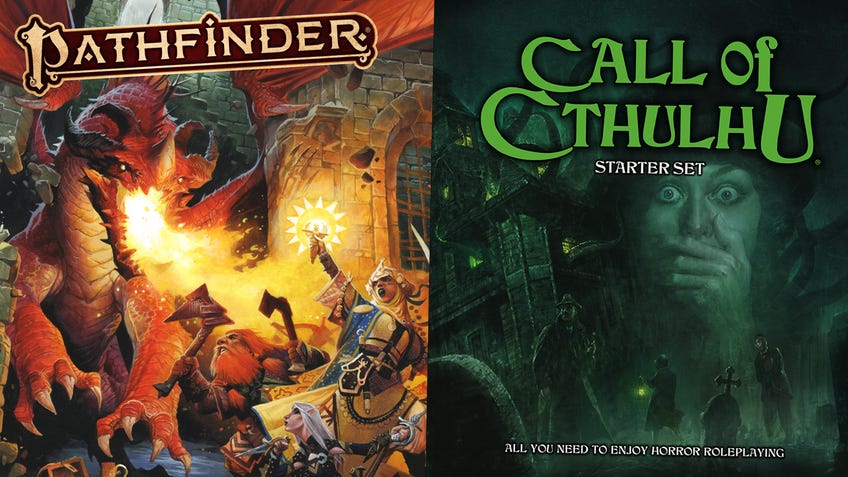Pathfinder and Call of Cthulhu RPGs sell out months’ worth of books in two weeks after D&D OGL backlash
Paizo and Chaosium announce extra printings following ‘overwhelming surge’ in interest.
It looks like Dungeons & Dragons players are flocking to other big-name RPGs in the wake of the embattled game’s recent OGL controversy.
The makers of fantasy RPG Pathfinder and horror classic Call of Cthulhu have both reported a massive jump in sales following the leaked revisions to the Open Gaming Licence revealed at the start of January.
D&D maker Wizards of the Coast eventually followed its widely-lambasted proposal - which included controversial changes to the document allowing third-party creators to use elements of D&D in their own creations - with an apology on January 13th and the promise that it would playtest future versions of the OGL, as well as releasing D&D’s core mechanics freely under a Creative Commons licence.
Despite Wizards’ attempts to regain players’ trust, Paizo announced on January 26th that it had seen an “overwhelming” amount of interest in its fantasy RPG Pathfinder - which was originally built on D&D 3.5 using the OGL.
According to the publisher, it sold out of eight months’ worth of the game’s physical core rulebook in the last two weeks, with the RPG’s Beginner Box starter kits seeing a similar ‘surge’. Paizo confirmed it had ordered an additional print run of the hardcover core rulebook to meet the demand, due to arrive in mid-April.
Call of Cthulhu studio Chaosium similarly reported a boom in players on January 27th, describing the increased demand for the long-running horror RPG over the last two weeks as “a truly monstrous surge”.
The publisher said it expected to sell through copies of Call of Cthulhu’s starter set “months ahead of schedule” as the result of its explosion in popularity. A new printing of Call of Cthulhu is due to arrive in early February, followed by a second in March.
The surge in players coincides with Paizo’s announcement of its own alternative to the OGL, the Open RPG Creative License, on January 12th. The publisher described the ORC as an effort to “irrevocably and unquestionably keep alive the spirit of the Open Game License”, by handing control of the licence to a non-profit organisation “with open source values” and allowing any RPG publisher to make its core gameplay mechanics available for third-party creators.
Among the first publishers to pledge their support to the system-agnostic open gaming licence was Chaosium, with Paizo claiming last week that over 1,500 companies have backed ORC so far.

